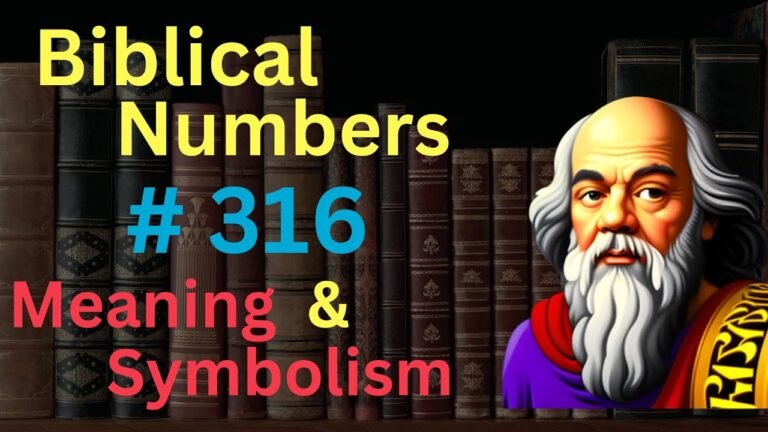The Significance of Twelve in Biblical Context
In the Bible, the number 12 holds significant symbolic meaning, often representing divine order and completeness. From the twelve tribes of Israel to the twelve apostles chosen by Jesus, this number permeates biblical narratives, highlighting themes of governance and spiritual authority. As readers explore the rich tapestry of scripture, understanding what 12 represents in the Bible can unveil deeper insights into God’s plan and the structure of faith throughout history.
What is the biblical significance of the number 12?
In biblical context, the number 12 carries profound significance, symbolizing perfect government and divine order. This concept is rooted in Hebrew traditions, where the number represents God’s sovereignty over creation and the establishment of a harmonious structure within society. The authors of the Bible often employed numerical symbolism to convey deeper meanings, making the number 12 a recurring theme that underscores the importance of divine authority.
Moreover, the prominence of the number 12 is evident in various biblical narratives, such as the twelve tribes of Israel and the twelve apostles chosen by Jesus. These instances highlight the number’s role in representing completeness and the establishment of a divinely ordained community. Through these examples, the number 12 transcends mere numerical value, embodying the essence of God’s governance and the ideal order intended for humanity.
What is the content of Numbers 12 in the Bible?
In Numbers 12, a conflict arises as Moses’ siblings, Aaron and Miriam, challenge his leadership and authority. Their grievances stem from Moses’ decision to marry a Cushite woman, which they argue contradicts the teachings regarding intermarriage with foreigners. This tension highlights the complexities of leadership and the expectations placed upon those in power, as well as the struggle for unity among the Israelites.
God intervenes in this family dispute, affirming Moses as His chosen leader and defending him against the accusations of his siblings. He emphasizes the unique relationship He shares with Moses, one characterized by direct communication and unparalleled trust. This divine endorsement not only reinforces Moses’ authority but also serves as a reminder of the importance of humility and respect within the community, establishing a clear distinction between God’s chosen messenger and the concerns of others.
What does the number 12 signify in the Catholic Bible?
The number twelve holds profound significance in the Bible, particularly within Catholic teachings, symbolizing perfection, order, and divine governance. This is evident in various contexts, such as the twelve tribes of Israel and the twelve apostles chosen by Jesus, representing a complete foundation for God’s people. The roots of this symbolism can be traced back to ancient civilizations, like the Babylonians, who utilized a sexagesimal system, influencing our modern understanding of a dozen. Thus, twelve emerges as a powerful emblem of spiritual authority and the divine structure within the sacred texts.
Exploring the Divine Symbolism of Twelve
The number twelve has long captivated human imagination, serving as a bridge between the earthly and the divine. In various cultures and spiritual traditions, it is often seen as a representation of completeness and cosmic order. From the twelve months of the year that govern our time to the twelve zodiac signs that shape our personalities, this number resonates deeply within the rhythms of life. Its recurrence in sacred texts and mythologies further solidifies its status as a symbol of divine structure, guiding followers toward a greater understanding of their place in the universe.
Religious contexts amplify the significance of twelve, as seen in Christianity with the twelve apostles who spread the teachings of Jesus, or in Judaism with the twelve tribes of Israel, each representing a unique facet of the collective identity. These examples illustrate how twelve serves not just as a number but as a narrative thread that weaves diverse stories into a cohesive whole. It highlights the interconnectedness of humanity and the divine, suggesting that every individual plays a vital role in the larger tapestry of existence.
Moreover, the symbolism of twelve extends into modern interpretations, where it embodies ideals of harmony and balance. In a world often marked by chaos, the number serves as a reminder of the importance of unity and cooperation. Whether it’s in a business environment where twelve team members collaborate on a project or in personal relationships that thrive on shared values, the essence of twelve encourages us to seek connections that foster growth and understanding. Embracing this symbolism can lead to a more fulfilling and purposeful life, bridging the gap between the mundane and the transcendent.
Twelve: A Key Number in Scripture
The number twelve holds a significant place in biblical scripture, symbolizing divine authority and completeness. Throughout both the Old and New Testaments, twelve emerges repeatedly, from the twelve tribes of Israel to the twelve apostles chosen by Jesus. Each instance serves to establish a sense of order and significance, highlighting God’s covenant with His people and the foundation of the early Church.
In the story of the twelve tribes, we see the formation of a nation, where each tribe represents a unique aspect of God’s promise to His people. This division not only emphasizes the importance of community but also illustrates the diverse roles within the body of believers. Similarly, the twelve apostles were pivotal in spreading the Gospel, each contributing to the establishment of a faith that would resonate through the ages. Their unity in purpose underscores the collective mission to share God’s love and teachings.
Moreover, the symbolism of twelve extends beyond mere enumeration; it evokes a sense of completeness and fulfillment in God’s plans. The twelve gates of the New Jerusalem, described in Revelation, signify the inclusive nature of God’s kingdom, welcoming all who seek Him. Thus, the number twelve encapsulates a profound spiritual truth: it represents the harmony and wholeness found in God’s overarching narrative, inviting believers to recognize their place within it.
Unraveling the Mystique of Twelve in the Bible
The number twelve resonates profoundly throughout the Bible, symbolizing divine order and completeness. From the twelve tribes of Israel to the twelve apostles chosen by Jesus, this number signifies a foundation for God’s covenant and His mission on Earth. Each instance reflects a deeper spiritual significance, inviting believers to explore the richness of faith and community. The recurring theme of twelve serves as a reminder of the structured yet dynamic nature of God’s plan, encouraging individuals to connect with their roots and embrace their role within a greater divine narrative.
The Role of Twelve in Faith and Tradition
The number twelve holds a significant place in various faiths and traditions, symbolizing completeness and divine order. In Christianity, the twelve apostles represent the foundation of the Church, embodying the teachings of Jesus and spreading his message. Similarly, in Judaism, the twelve tribes of Israel reflect the unity and diversity of God’s chosen people, each contributing to the collective identity of the nation. This recurrence of twelve across different beliefs underscores its importance as a symbol of faith, community, and spiritual fulfillment.
Beyond religious contexts, the number twelve permeates cultural practices and traditions around the world. From the twelve months of the year that guide our calendars to the twelve signs of the zodiac that influence astrology, this number serves as a framework for understanding time and our place within it. In many societies, rituals and celebrations often revolve around this number, reinforcing its role as a marker of cycles, milestones, and communal gatherings. Thus, twelve not only signifies spiritual completeness but also enriches our cultural narratives and human experiences.
Twelve: Insights from Biblical Narratives
Biblical narratives offer profound insights into the human condition, illustrating timeless themes that resonate across cultures and eras. Stories of triumph and failure, love and betrayal, forgiveness and redemption weave together a rich tapestry of moral lessons. Each character, from the unwavering faith of Abraham to the profound wisdom of Solomon, serves as a mirror reflecting our own struggles and aspirations, prompting us to explore our values and beliefs.
Through these narratives, we find guidance on navigating life’s complexities. The trials of Job teach resilience in the face of suffering, while the compassion shown by the Good Samaritan urges us to extend kindness beyond boundaries. These stories encourage introspection and challenge us to act with integrity, reminding us that our choices shape not only our destinies but also the lives of those around us.
Ultimately, the insights gleaned from these biblical tales transcend their historical context, providing a moral compass for contemporary society. They invite us to engage with our inner selves and foster a sense of community through shared values and lessons. By reflecting on the profound wisdom found within these texts, we can cultivate a deeper understanding of our purpose and our interconnectedness with others, enriching both our personal journeys and collective experiences.
The number 12 holds profound significance in the Bible, symbolizing divine authority, completeness, and God’s covenant with His people. From the twelve tribes of Israel to the twelve apostles chosen by Jesus, this number weaves a narrative of faith, unity, and divine purpose throughout scripture. Understanding the importance of 12 invites deeper exploration into the spiritual meanings embedded in biblical texts, enriching one’s journey through faith and scripture.







